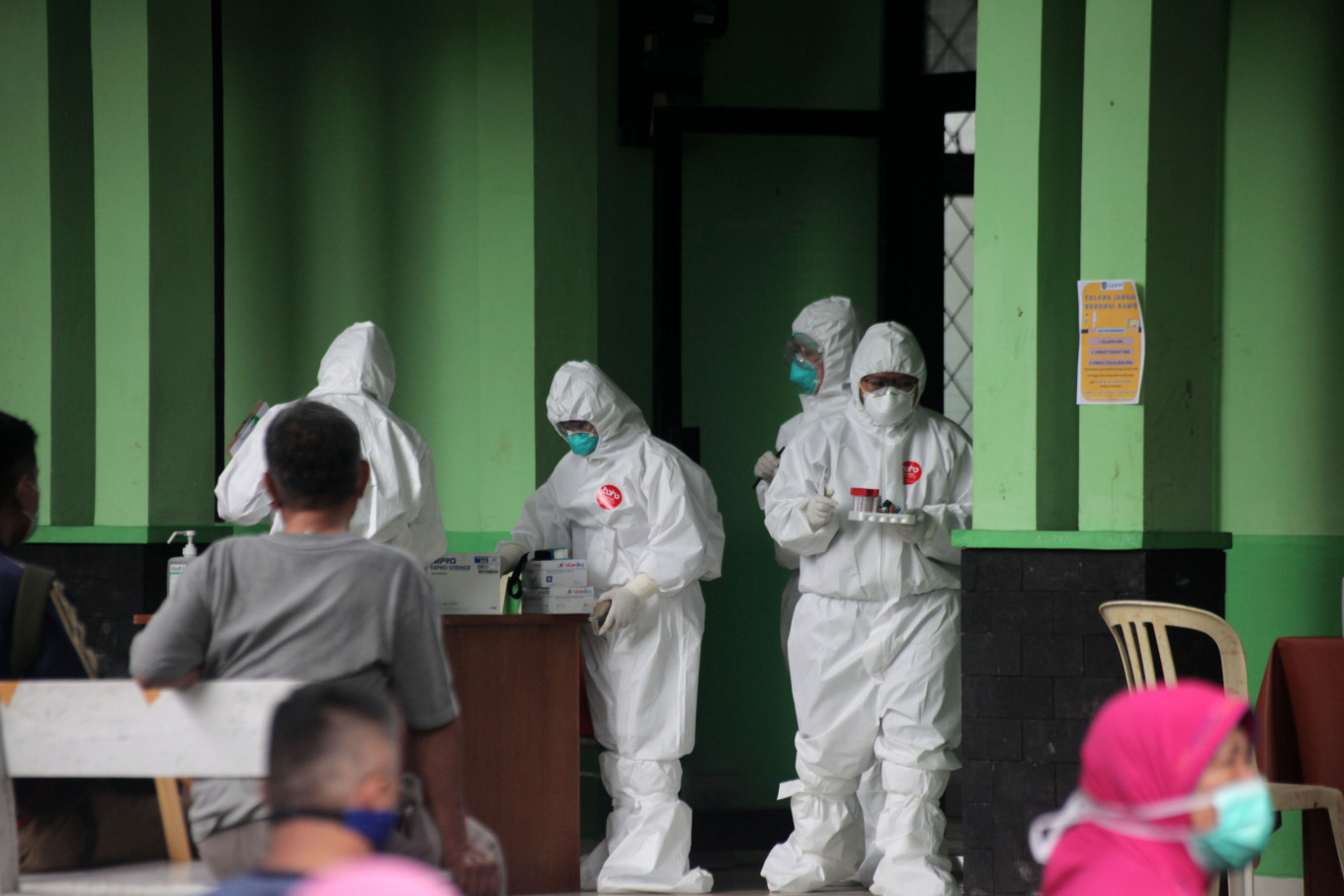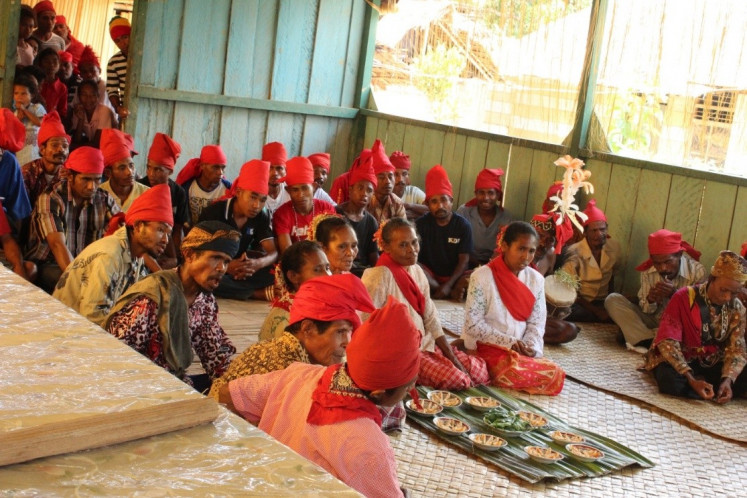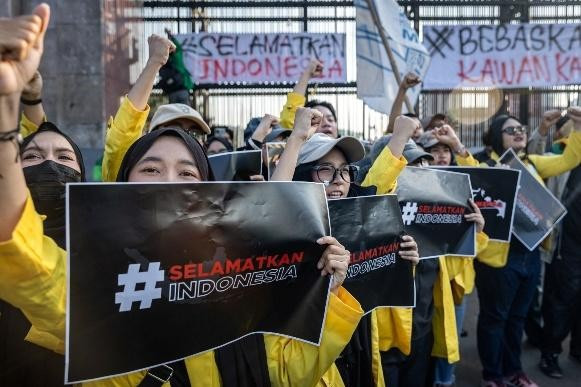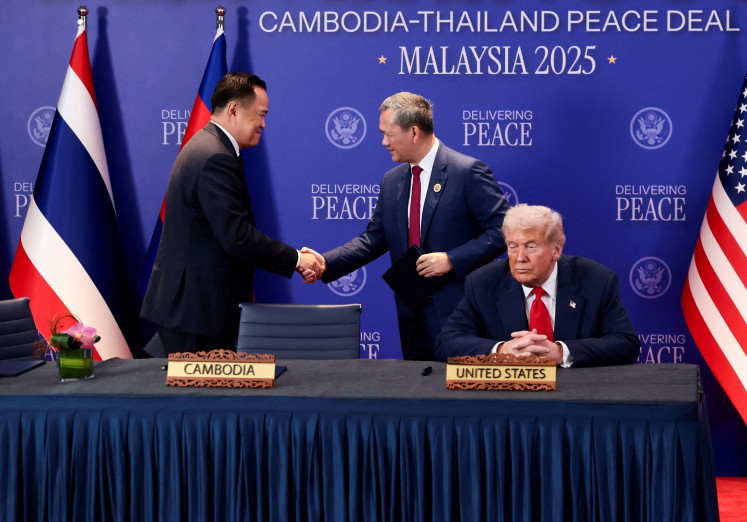Popular Reads
Top Results
Can't find what you're looking for?
View all search resultsPopular Reads
Top Results
Can't find what you're looking for?
View all search resultsRespect, not reject COVID-19 victims
Excessive fear and lack of knowledge about the status of COVID-19 victims have led to ridiculous behavior that is far from humane. Some communities have rejected the burial of those known or believed to have died from the virus.
Change text size
Gift Premium Articles
to Anyone
T
he COVID-19 outbreak in Indonesia continues to take its toll, including among physicians, nurses and other supporting health workers. The province with the greatest number of positive COVID-19 cases is still the capital, followed by West Java, East Java and Banten.
The Indonesian Medical Association (IDI) reported on April 5 that 24 doctors in the country had died either after testing positive for the novel coronavirus or while they were listed as patients under surveillance. Medical personnel are certainly exposed to the virus when treating COVID-19 patients in hospital.
On April 12, the Reform Union of Pharmacy and Health Workers (FSP FARKES/R) reported that 44 physicians, including 12 nurses, had died from COVID-19. We are devastated at these seemingly preventive deaths, likely caused by a lack of safety facilities for medical personnel, including standardized personal protective equipment.
Read also: COVID-19: Indonesia to export PPE to South Korea as compensation for raw materials Excessive fear and lack of knowledge about the status of COVID-19 victims have led to ridiculous behavior that is far from humane. Some communities have rejected the burial of those known or believed to have died from the virus.
In some cases, bodies were dug up again to be buried elsewhere following surrounding residents’ protests as they cited fearpas of the soil and water being contaminated. Such incidents were reported in Makassar and Gowa in South Sulawesi and Banyumas in Central Java, among other places.
No less heartbreaking is the story of a nurse identified as NK who died in the Dr. Kariadi General Hospital in Semarang, Central Java, on April 9. The 38-year-old passed away after treating a COVID-19 patient. The nurse’s burial was rejected by residents in her hometown of Ungaran, Semarang regency, and the ambulance brought her body back to the hospital. Similar protests have occurred despite explanations that the remains of COVID-19 victims are treated with strict special protocol. Finally, the nurse was buried in a cemetery for hospital employees and their families with special honors as a heroine!
We do not fully blame the excessive actions of some people who reject such burials as the information and knowledge about COVID-19 may have not really been conveyed effectively to all members of the public. People who fall victim to hoaxes on social media are vulnerable to hyped-up fears about how they could catch the virus, including from the deceased.
Since the beginning of the outbreak, massive information and education campaigns on everything related to the virus and the pandemic should have reached the grass roots and their local authorities, down to the neighborhood levels; what the novel coronavirus is, how individuals or as community members should prevent transmission, mitigation after an area is exposed, the protocol for handling corpses of COVID-19 victims and so forth. Armed with the right knowledge from the right sources, ordinary people will have a strong foundation in acting responsibly to anticipate COVID-19.
Indonesians have shown strong solidarity during this pandemic. Officials, businesses, celebrities, artists, NGOs and ordinary community members organize resources — whether it is money, goods and energy — to raise donations to marginalized communities affected by COVID-19. However, our communities still lack sensitivity to the feelings of families who have lost loved ones to the virus.
Rejection against the burial of the deceased and having to have them buried in a designated place for COVID-19 victims really hurts the families. The bodies are regarded with horror and even disgust by residents who fear they could be contaminated, while the deceased are respected and innocent persons and the physicians and nurses are in the frontline handling the COVID-19 patients — none are criminals that deserve to be rejected!
The trauma of a family member of a COVID-19 victim can last for years and can disrupt their mental health. It is inconceivable how sad and painful they must feel when they manage to visit the graves each time with fresh memories of the rejection of their burial.
Read also: 'They need mental support': RSPI Sulianti Saroso nurse shares experience treating COVID-19 I propose that each COVID-19 victim should be buried in the nearest public cemetery to where he or she died. This will save time in addition to adhering to the strict protocols in treating the body and conducting the burial to ensure safety for all. We must continue to lift up the spirits of the victims’ families instead of hurting their feelings.
Particularly regarding health workers who have died because of the virus, hopefully, respective regional governments will allow their local heroes’ cemeteries to be the final resting place for the deceased doctors, nurses and other paramedics who died on duty, a policy that Central Java Governor Ganjar Pranowo is pursuing. They deserve the highest respect as heroes of humanity who attempted to save citizens and the nation against COVID-19.
This proposal is also in line with the 1996 Social Affairs Ministerial Decree that civilians proved to be of great merit for the nation could be buried in the heroes’ cemeteries. Hopefully, President Joko “Jokowi” Widodo, who himself has expressed praise for all frontliners, can grasp the urgency to instill public respect for the sacrifice of these health workers.
As a nation based on the Pancasila state ideology, there is no place for the bullying of victims of COVID-19, alive or dead, along with their family members. Anybody can be infected, regardless of social status, age, religion and race.
____
Member of the Indonesian Young Academy of Sciences (ALMI) and director of Politeknik Banjarnegara










